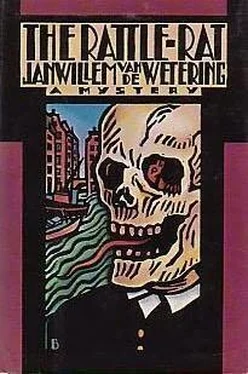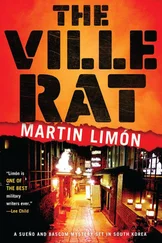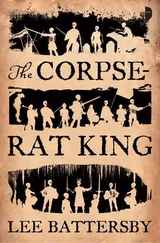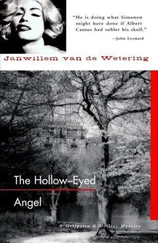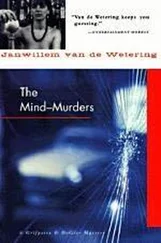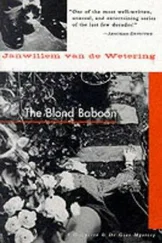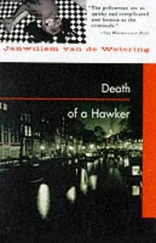Janwillem De Wetering - The Rattle-Rat
Здесь есть возможность читать онлайн «Janwillem De Wetering - The Rattle-Rat» весь текст электронной книги совершенно бесплатно (целиком полную версию без сокращений). В некоторых случаях можно слушать аудио, скачать через торрент в формате fb2 и присутствует краткое содержание. Жанр: Полицейский детектив, на английском языке. Описание произведения, (предисловие) а так же отзывы посетителей доступны на портале библиотеки ЛибКат.
- Название:The Rattle-Rat
- Автор:
- Жанр:
- Год:неизвестен
- ISBN:нет данных
- Рейтинг книги:3 / 5. Голосов: 1
-
Избранное:Добавить в избранное
- Отзывы:
-
Ваша оценка:
- 60
- 1
- 2
- 3
- 4
- 5
The Rattle-Rat: краткое содержание, описание и аннотация
Предлагаем к чтению аннотацию, описание, краткое содержание или предисловие (зависит от того, что написал сам автор книги «The Rattle-Rat»). Если вы не нашли необходимую информацию о книге — напишите в комментариях, мы постараемся отыскать её.
The Rattle-Rat — читать онлайн бесплатно полную книгу (весь текст) целиком
Ниже представлен текст книги, разбитый по страницам. Система сохранения места последней прочитанной страницы, позволяет с удобством читать онлайн бесплатно книгу «The Rattle-Rat», без необходимости каждый раз заново искать на чём Вы остановились. Поставьте закладку, и сможете в любой момент перейти на страницу, на которой закончили чтение.
Интервал:
Закладка:
"Police," the chief constable said loudly. "Checking your residence permits. Your papers, please."
The Chinese in the rear backed off, and the Chinese in front approached, running around the chief constable and the commissaris. They came back again, trying to get away from the policemen now appearing at both sides of the large room. One man remained at the bar, neither young nor Chinese, a fairly heavy man with a rather red face. He wore a tweed suit. "Evening," the man said.
"Evening, Adjutant," the chief constable said. "I had hoped not to find you here. Stay where you are, never mind what goes on."
Behind the bar, an old Chinese smiled at the confusion. The commissaris slipped behind the counter. The old Chinese offered his hand. The commissaris shook it. "Wang," the Chinese said.
"A good evening to you, Mr. Wang."
The young Chinese were shouting at the policemen.
"What are they saying?" the commissaris asked.
"'Rotten egg,'" Mr. Wang said.
The young Chinese made fast beating and kicking movements, turned rapidly on their own axles, breathed sharply in and out. The policemen were quiet behind their drawn guns.
"What are they doing?" the commissaris asked.
"Gymnastics," Mr. Wang said. "Karate. Like in the movies. You know that type of movie? 'Sah! Tohl Wah!'"
"I hardly ever go to the movies," the commissaris said.
"They say that when they fight," Mr. Wang said. He blew and hummed simultaneously. "Never heard that sort of sound? They do that too, when participants close in on each other."
The young Chinese were humming and blowing.
"And where does that get them?" the commissaris asked.
"When they do it in the movies," Mr. Wang said, "they're paid."
"You're under arrest," the chief constable said loudly. "All of you, turn to the wall and put your hands behind your necks. Right away. Hop."
"Hop isn't here," Mr. Wang said.
"Your Dutch is impeccable," the commissaris said.
"I was born here," Mr. Wang said. "I don't want to be Chinese anymore. I prefer to be nothing."
"Weren't you nothing from the beginning?" the commissaris asked.
Wang reached for a bottle of cognac and two glasses. "Are you a Buddhist?"
"You're not right in the head," the commissaris said. "A Buddhist is something. Why should I be anything at all?"
Wang poured the drinks. He gave the commissaris a glass. "I beg your pardon. Your very good health."
"I beg your pardon too," the commissaris said. "Your very good health."
The chief constable was accepting the weapons found on the young Chinese. "Would you like a bag?" Mr. Wang asked. Two revolvers, a pistol, and sue knives were pushed into a white plastic sack. The chief constable put the bag on the counter and looked at Adjutant Oppenhuyzen. He put out his hand. "Your weapon, too, and your identification. Apply for leave in writing. It'll be granted, for the rest of your years, forever, amen, Adjutant."
Oppenhuyzen gave him the requested objects.
"Go," the chief constable said, "and never be seen again."
Oppenhuyzen smiled inanely, pushed himself off his stool, said "Good evening" dreamily, and wandered to the door.
De Gier came in after the suspects had been led out. Eddy rested on the sergeant's hands.
"Away," the chief constable said. De Gier turned about. "Not you," the chief constable said. "I meant the rat. What's a dead rat doing here? Did you find him outside?"
De Gier turned about again. He offered the rat to the commissaris.
"For me?" the commissaris asked.
"For Douwe, sir. Didn't Cardozo say Douwe still needed a gift to present to your suspects?"
"Would you like a bag?" Mr. Wang asked.
Eddy was shoved into white plastic.
"Friend of yours?" Mr. Wang asked.
"Yes," the commissaris said. "Sergeant de Gier. He'll go far, I keep thinking."
"I meant the rat," Mr. Wang said.
"In a way," the commissaris said. "I haven't known him U that long, and I already have a friend, a turtle, who lives in my rear garden. I rather prefer quiet friends. Eddy liked to rattle. I didn't take to the sound."
The young Chinese were shouting on the parking lot. "'Rotten egg,'" Mr. Wang said. "Their conversation is monotonous. I hope to be without it for a while."
"Coming?" the chief constable asked the commissaris.
"I should go back to Amsterdam," the commissaris said. "Rinus, you take me. Cardozo has my car. And then you can drive back to Friesland. You'll be off tomorrow again, and can sleep late."
The commissaris thanked the chief constable for the adventure and Mr. Wang for his hospitality. He carried Eddy in his bag to the Deux Chevaux.
De Gier waited for the question that wasn't coming, for the commissaris was asleep.
"You're home, sir."
"What?" the commissaris asked. "Right." He got out. De Gier took him to the door of his house and handed him Eddy in the bag.
"Thank you," the commissaris said. "Have a good trip back, Sergeant."
\\\\\ 24 /////
Modern science has developed a type of glass that is transparent on one side and mirrored on the other. The invention benefits detection. With a suspect on one side and a detective on the other, much that was hidden becomes instantly clear. A wall of this type of glass divides two rooms in Amsterdam Police Headquarters. On the suspect's side of the glass wall, much work was done that day, observed by curious eyes hidden behind the mirror. Cardozo and the Madame Tussaud friend didn't know that Adjutant Grypstra watched their movements. They could have known, but they were too busy creating. True creation, the Madame Tussaud friend explained, reconstructs reality. Modern reality may be of divine origin, but once the thing is done, the artist gets his chance in duplication.
Grypstra didn't hear that, or he would have frowned. The adjutant smiled, for he was listening to jazz through earphones connected to a box. He had the box because Jane wanted him to repair it. The box only needed new batteries, and a cassette that Grypstra happened to find on de Gier's desk. He now listened to a jazz mathematician on piano- nameless, for the sergeant had left the label blank. Grypstra smiled because it wasn't often that luck reached him from 264 several sides at once. The beautiful constable and the perfect music met in his mind, housed in a rhythmically wobbling head. Let it all come to me, Grypstra thought, and not by my own effort, and while it does, I can watch those two jokers. While I do nothing myself, all the mysteries are clarified, beginning with the riddle of Douwe Scherjoen's being.
"Yahoo!" and "Whee!" Cardozo and the Madame Tussaud friend shouted while they worked on their tangible expression of the dead man's dark side. Their diligent hands stapled strips of black cotton material to wooden sticks, hinged so that they would move at the pull of a string. Douwe could already sit down and get up. He also had to take a step forward while stretching out his hands, and the hands, emerging from cotton cuffs, were to give the visitor the gift. The gift, sent by the commissaris, waited in its plastic bag. As the bony thumbs kept slipping, the Madame Tussaud friend experimented with wires meant to hold joints together while Cardozo worked on the lights, which hung in the corners of the room and were able to turn and flash.
"A sudden impression," the Madame Tussaud friend said. "It has to work for only a single moment."
Grijpstra's jazz cassette had come to the end, and the adjutant now listened to the artists' dialogue, picked up by microphones and amplified on his side of the glass.
"Never mind Douwe's bright side," Cardozo said, closing the album that he had been studying before. "Let's show him at his worst, chill the visitor with pure nastiness."
'Too abstract," the Madame Tussaud friend said. "They won't believe it. We'll make Douwe beg for forgiveness. Let's give him a pathetic touch."
Читать дальшеИнтервал:
Закладка:
Похожие книги на «The Rattle-Rat»
Представляем Вашему вниманию похожие книги на «The Rattle-Rat» списком для выбора. Мы отобрали схожую по названию и смыслу литературу в надежде предоставить читателям больше вариантов отыскать новые, интересные, ещё непрочитанные произведения.
Обсуждение, отзывы о книге «The Rattle-Rat» и просто собственные мнения читателей. Оставьте ваши комментарии, напишите, что Вы думаете о произведении, его смысле или главных героях. Укажите что конкретно понравилось, а что нет, и почему Вы так считаете.
